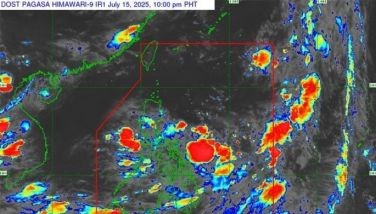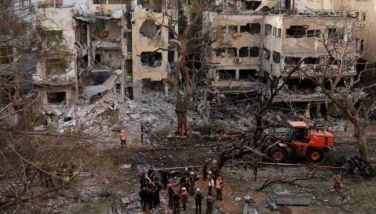7.5 M Pinoys have no birth certificates
MANILA, Philippines - At least 7.5 million Filipinos have not registered their names upon birth and are therefore stripped of some civil and democratic rights such as secondary education and the right to vote.
Child-centered Plan International, a non-profit organization in the United Kingdom, told the media yesterday that two of 10 children in 500 communities are not registered at birth.
It said many of the children, especially those in far-flung areas, are denied enrollment or cannot graduate from high school because they have no birth certificates to prove their age or identity.
Child-centered Plan country director Carin van der Hor said the Autonomous Region in Muslim Mindanao has the highest rate of unregistered individuals at 62 percent or roughly 970,000 people.
“It means that out there, a lot of Filipinos do not enjoy the right to a name and a nationality – a basic human right – and cannot prove their identity. They have difficulty enrolling in schools, applying for jobs, securing travel documents,†Van der Hor, a Dutch national helping poor communities in the country, said.
Families are kept from having their names officially recorded due to their lack of understanding of its significance and the registration process is too difficult and time-consuming for them.
They are also concerned about the costs in processing and obtaining birth documents, which require them to spend anything from P30 to P400.
“High fees and the distance of the registration office from where they live really hinder the process,†Van der Hor said.
She said her group had even seen senior citizens and those over 80 years of age acquiring their birth documents only recently through Plan’s registration program in the provinces and remote areas.
Shield from abuse
Van der Hor, whose work involves the protection of children vulnerable to abuse and danger, said individuals without birth certificates are at risk of being traded for forced labor or sexual slavery.
“Minors whose age cannot be verified through official record may become easy prey for human trafficking, and in fact we’ve seen that happen,†she said.
She added that trafficking syndicates know how to choose those who do not have proper paperwork and whose identities cannot be proven.
“Birth registration is a child protection tool that helps ensure that children in conflict with the law are not treated as adults, for instance, and not at risk of being trafficked, among others,†Van der Hor said.
Involving local government
Plan signed an agreement with the League of Cities of the Philippines, represented by Marikina City Mayor Del de Guzman, yesterday to “share resources and technical expertise†in facilitating the registration process for members of the population.
The larger registration problem, however, exists not in urban areas but in smaller municipalities in the provinces.
“Maybe (some local government units) are thinking there are those ‘fixing’ birth certificates... or maybe they are waiting for the program coming from the chief executive,†De Guzman said.
He cited the lack of awareness among local leaders of the certification issue.
- Latest
- Trending

































